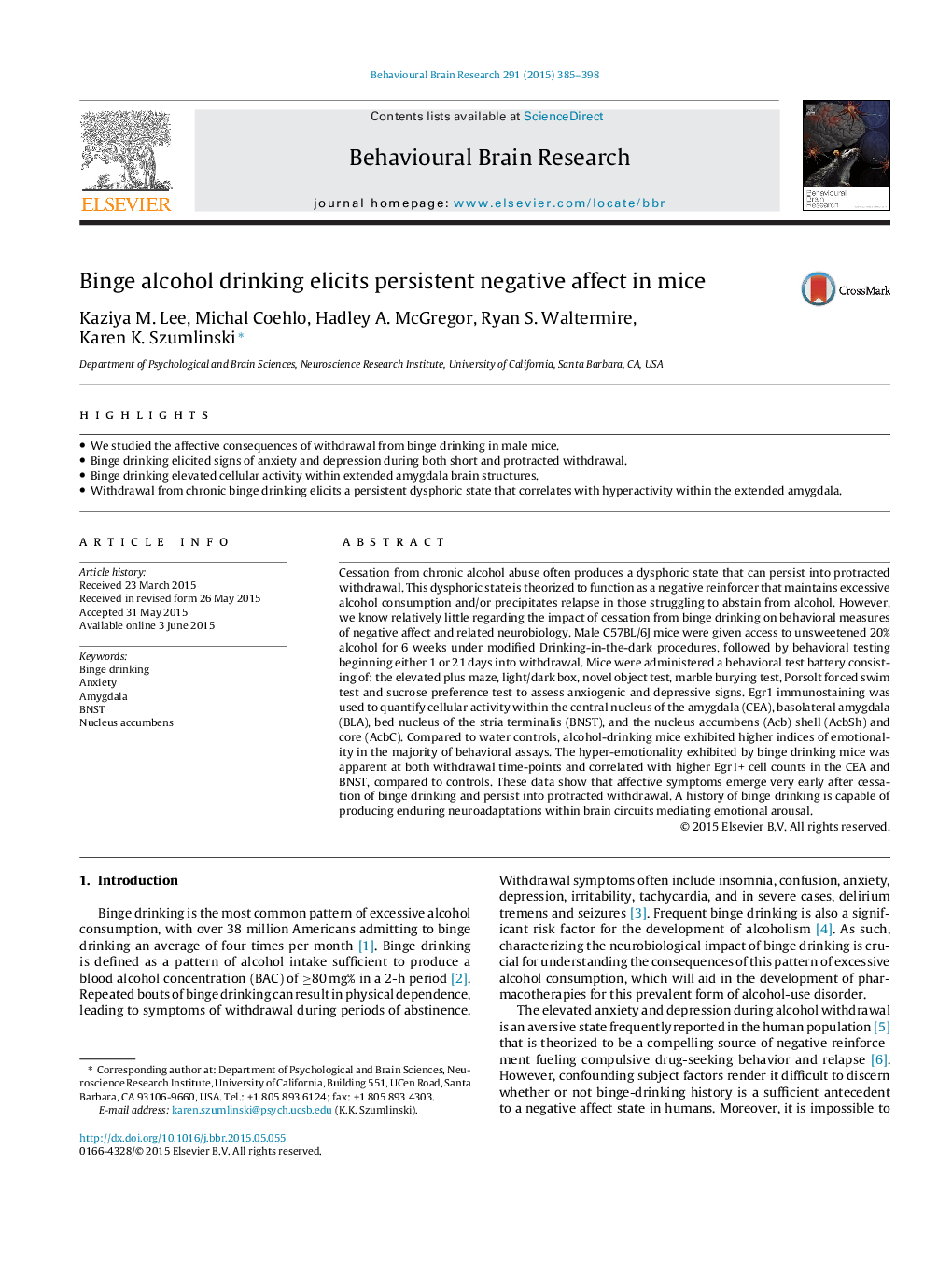| کد مقاله | کد نشریه | سال انتشار | مقاله انگلیسی | نسخه تمام متن |
|---|---|---|---|---|
| 4312409 | 1612941 | 2015 | 14 صفحه PDF | دانلود رایگان |
• We studied the affective consequences of withdrawal from binge drinking in male mice.
• Binge drinking elicited signs of anxiety and depression during both short and protracted withdrawal.
• Binge drinking elevated cellular activity within extended amygdala brain structures.
• Withdrawal from chronic binge drinking elicits a persistent dysphoric state that correlates with hyperactivity within the extended amygdala.
Cessation from chronic alcohol abuse often produces a dysphoric state that can persist into protracted withdrawal. This dysphoric state is theorized to function as a negative reinforcer that maintains excessive alcohol consumption and/or precipitates relapse in those struggling to abstain from alcohol. However, we know relatively little regarding the impact of cessation from binge drinking on behavioral measures of negative affect and related neurobiology. Male C57BL/6J mice were given access to unsweetened 20% alcohol for 6 weeks under modified Drinking-in-the-dark procedures, followed by behavioral testing beginning either 1 or 21 days into withdrawal. Mice were administered a behavioral test battery consisting of: the elevated plus maze, light/dark box, novel object test, marble burying test, Porsolt forced swim test and sucrose preference test to assess anxiogenic and depressive signs. Egr1 immunostaining was used to quantify cellular activity within the central nucleus of the amygdala (CEA), basolateral amygdala (BLA), bed nucleus of the stria terminalis (BNST), and the nucleus accumbens (Acb) shell (AcbSh) and core (AcbC). Compared to water controls, alcohol-drinking mice exhibited higher indices of emotionality in the majority of behavioral assays. The hyper-emotionality exhibited by binge drinking mice was apparent at both withdrawal time-points and correlated with higher Egr1+ cell counts in the CEA and BNST, compared to controls. These data show that affective symptoms emerge very early after cessation of binge drinking and persist into protracted withdrawal. A history of binge drinking is capable of producing enduring neuroadaptations within brain circuits mediating emotional arousal.
Journal: Behavioural Brain Research - Volume 291, 15 September 2015, Pages 385–398
